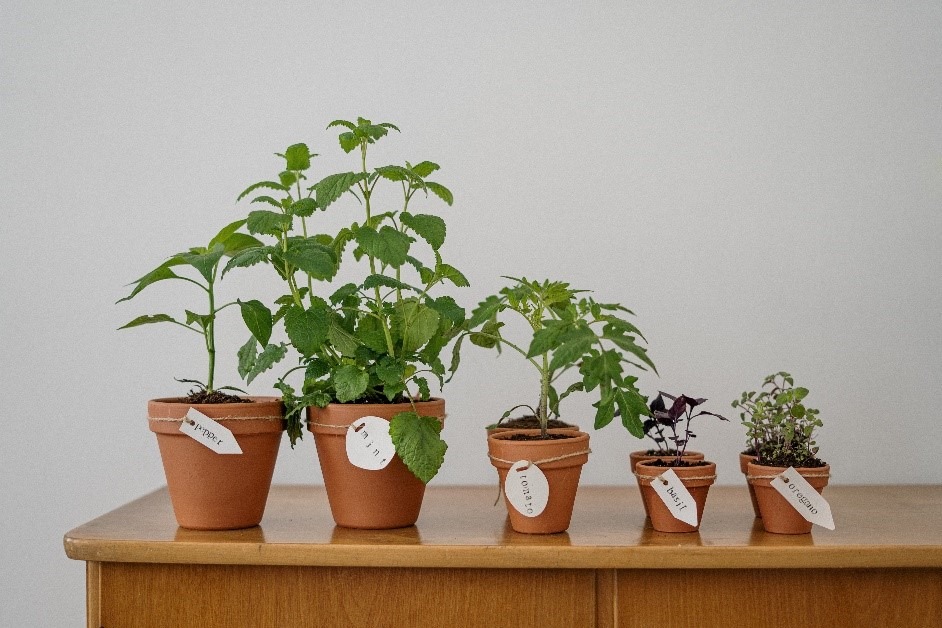Gardening in a Rental Property
Rental properties have some limitations for gardening but that doesn’t rule it out. Larger properties with yards could have a garden area or the potential for one with the landlord’s permission. You can do quite a bit of gardening with just a patio and some pots. Apartment living doesn’t seem like it would be conducive to gardening but it is possible with a little creative thinking. It is also beneficial in multiple ways. Nothing tastes better than a homegrown tomato or a dish flavored with fresh herbs. It reduces stress and improves air quality. Plants connect you to nature. It is heartening to watch your plants grow and flourish under your care. If you have never gardened before, start small and work on building your green thumb.

What You Will Need
The first thing you will need is light. For gardening in a rental property, consider where you have windows available. South-facing windows provide direct sunlight all year. East and west-facing windows provide light for part of the day. North-facing windows provide ambient light instead of direct light with is adequate for some plants but not all. Even in a basement apartment, light can be found. If you have no good windows, a grow light on a timer can provide the light you need. If you don’t know your plant’s light requirements, move them around until you find a place where they are happy and thriving. Plan your garden around the light you have available.
Water is vitally important for humans and plants. Without it, we wither and die. But all water is not the same. Tap water frequently contains chlorine or other chemicals that can damage plants. Rainwater is often best but not feasible for an apartment garden unless it is on the roof. Distilled water is great but requires extra effort and expense to purchase and haul home. Filtered water also works but takes time to filter and can increase costs. If all you have is tap water, it can be used with some planning. Fill your watering can after you water and let it sit for the next watering (at least 24 hours). This will allow the chlorine to dissipate and any particulates to settle to the bottom of the container. You can also boil water for your plants and let it cool to room temp before using. Water should be at room temperature to avoid damage to the roots.
Fertilizers are the food plants need to thrive. Each plant has its own requirements but these can often be met with a general fertilizer. These are available in many forms such as sticks you push into the soil surrounding the plant, slow-release granules you sprinkle on the soil, or quick-release granules dissolved in the water. Some potting soils have fertilizer in them that is good for a certain length of time, usually a single growing season.
What to Plant
If you are just starting out, a few pots of herbs are the easiest place to start. Think of the herbs you use most in your cooking and start with those. Oregano, thyme, sage, mint, basil, or chives can often be bought as starts or seeds from the home improvement stores. And for renters, these are easiest to move when you do.
If you have room for larger pots, add in some tomatoes, carrots, radishes, or lettuce. Even potatoes can be grown in pots. These are easiest on a balcony or patio if you don’t have garden space but can be done inside in a sunny location.
There are many varieties of dwarf fruit trees that can also be grown indoors. Dwarf lemon or lime trees and avocados started from a pit can produce fruits after a few years with some tending.
Microgreens or sprouts are other options for adding fresh nutrients to your diet. These can be harvested in a few weeks.
Note: Some types of plants may bring more issues than they are worth. For example, if you live in a state that allows marijuana, you will need to check with the state for how many plants are allowed per person, and also with your property manager to see if they will allow this kind of plant. There is a smell to these plants that may be unpleasant for you and your neighbors. If this is something you want to grow, you will need to investigate the legal implications before you start on this type of gardening.
Space and Time
You have picked what you want to plant. Now consider where you will set up. Are you planning to fill a sunny area in your home or a balcony or patio? It may be wise to start small with a single pot of herbs on a window sill or countertop as you learn how to garden. Starting with too many plants will take up a lot of time and resources and can overwhelm a new gardener. You can add on as you become more comfortable and skilled.
More people are working from home and for these people, a larger garden may be a good option. Indoor plants rarely need weeding but an outdoor garden may, especially if you are in an area where weed seeds are blown around. A plot of land dedicated to a garden will require more weeding than a pot on a patio. Inside or out, you will also need to prune or trim out any dead leaves or stems.
Your Garden
Gardens can be a single pot or a series of window boxes. You can hang pots if space is limited and grow up instead of out. A comfortable chair surrounded by pots of various sizes can be a wonderful place to relax and contemplate nature. How you design your garden is up to you and what suits you best. Remember to plan for any water that drains from your pots. Some pots have built-in basins under the pot. You will want the soil to drain to keep roots from rotting but will also want to control that drainage to prevent damage under your pots.
Also, consider the time you will need to harvest and preserve your crop. Some crops come on all at once, like June bearing strawberries, and some mature a little at a time. If you are planning to make jam, you will want your crop to mature in a shorter time frame but if you just want to snack on them, everbearing would be a better option. Plan any trips before or well after your crop matures so you don’t lose your harvest.
In these uncertain times, growing some of your own food can be very liberating. It is a skill that was once considered essential. Like anything, it takes time to learn what works and what doesn’t but the rewards are bountiful. Even in small spaces, you can enjoy gardening. Gardening in a rental property is both possible and fun. Check with your landlord about dedicated growing space outdoors, especially if you want to convert an area that hasn’t previously been gardened.
The Property Manager in Durango can be a great resource for what you can accomplish in your rented space. Should your desire to garden outgrow your space, don’t despair, there are other options. The Property Manager can direct you to community gardens in your area where you can branch out into new adventures.
https://plantcareforbeginners.com/articles/can-you-use-tap-water-to-water-your-houseplants
https://www.apartmentlist.com/renter-life/apartment-gardening-for-beginners
https://www.mindbodygreen.com/articles/apartment-gardening



